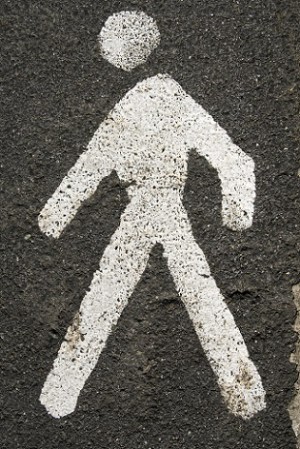The Tampa Bay area, including St. Petersburg and Clearwater, was recently named one of the worst areas in the nation for pedestrian safety. In fact, four of the top five most dangerous metropolitan areas in the nation are in Florida, according to statistics compiled by the National Complete Streets Coalition. This is a dubious and dangerous distinction, considering that Florida is a popular destination for many tourists from across the U.S. and overseas. Records from 2012 indicate that there were 476 pedestrian fatalities in Florida, or 20% of all fatalities.
The numbers are high in Florida for a variety of reasons, corresponding with the large population. The growth of the tourism industry, along with the aging population, attracts a large number of visitors and residents who do not drive yet still need mobility. Growth in commercial sectors has led to an increase in vehicular traffic, particularly concentrated in urban areas, such as Tampa, Orlando, and Miami. As anyone who does drive regularly knows, Florida’s roadways are busy and fast, and are generally not conducive to foot traffic! The recession, high gas prices, and mild weather also make walking a popular means of transportation, particularly among the elderly, who have the highest per capita pedestrian death rate, according to the Governors Highway Safety Administration.
Pedestrians can protect themselves in great measure simply by being aware that drivers may not see them and watching out for distracted or negligent drivers. Pedestrian crashes are most likely to occur in places without sidewalks, where drivers simply don’t expect to see people walking. When sidewalks aren’t available, walkers should face oncoming traffic, make eye contact with drivers when possible, and keep as far away from the edge of the road as possible. Wearing light-colored or reflective clothing and carrying a flashlight at night also increases the chances of being seen. And just as distracted driving is discouraged for drivers, walkers should also put away their phones while walking and avoid alcohol use so that they can maximize their awareness of surrounding traffic.
Driver Responsibility
Drivers have a responsibility to avoid hitting pedestrians, obviously, considering their innate vulnerability. The Florida Driver’s Handbook states that “Turning motorists must yield to pedestrians at intersections with traffic signals. Motorists must yield to pedestrians crossing the street or driveway at any marked mid-block crossing, driveway or intersection without traffic signals.” Driving more slowly in areas with high foot traffic allows more time to observe pedestrians who may need to cross the street, and making use of the new technology of back-up cameras can be especially useful in parking areas. Drivers of newer hybrid cars are also warned to use extra vigilance around pedestrians, since their cars are quieter and pedestrians may not hear their approach.
In 2012, 4,745 pedestrians were killed and approximately 76,000 were injured in the United States (an increase of 6% above the previous year), according to the National Highway Traffic Safety Administration. It would appear that the numbers are on the rise commensurate with our expanding population and increasing number of pedestrians. Injured pedestrians may be able to recover compensation for their medical care, loss of income and additional pain and suffering, as well as punitive damages in some cases.
Dolman Law Group Accident Injury Lawyers, PA
Dolman Law Group Accident Injury Lawyers, PA will identify the negligent party, whether the accident was due to driver negligence or improper roadway maintenance, and work tirelessly to bring the negligent party to justice and recover proper compensation for pedestrian injuries. If you have suffered an injury caused by driver negligence or lost a loved one in a pedestrian accident, please contact Dolman Law Group Accident Injury Lawyers, PA for a free consultation and case evaluation at 727-451-6900.
Dolman Law Group Accident Injury Lawyers, PA
800 North Belcher Road
Clearwater, FL 33765
727-451-6900






